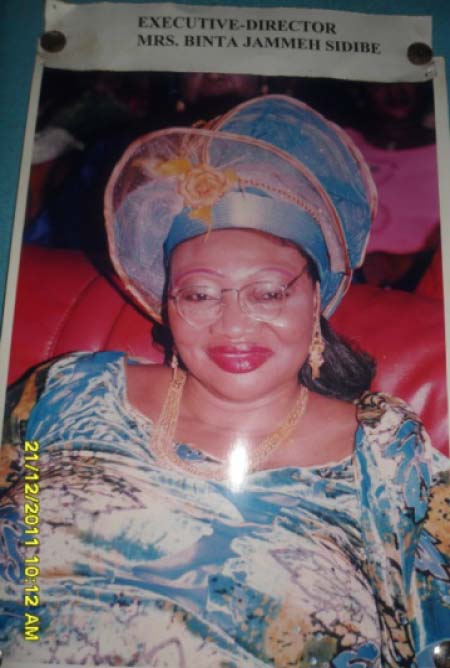
Social Development Fund (SDF) and Gambia Technical Training Institute (GTTI) on Wednesday launched a programme for women and girls in the male-dominated skills at the Gambia Technical Training Institute (GTTI).
Speaking at the launching ceremony, the guest speaker of the occasion, Binta Jammeh Sidibe, director of Sobeya Skills Training Centre, said the traditional female dominated skills include first and foremost cookery, home science, home management, sewing, embroidery, crochet, knitting and secretarial courses, being the most popular among the lot.
“In most offices in The Gambia, the secretary more often than not has a female face, beautiful smiles, painted nails, nice hairdo and speaking softly answering to telephone calls, making tea or coffee for the male boss,” she said.
She said as females they want to break away from these female-dominated skills and venture into the male-dominated skills, which include welding and fabrication, motor vehicle mechanics, plumbing and gas fitting, carpentry and joinery, and electrical installation.
Mrs Sidibeh asserted that disparities in rights and opportunities exist between men and women, girls and boys and therefore called for a new path to development that promotes equality, which is “more important now than ever”.
She said: “We all have a stake in women and girls education; every individual, every institution, every organization, every business, every Government is more interconnected and interdependent now than ever.”
Education is a basic human right enshrined and recognised in the 1948 Universal Declaration of Human Rights, she said, adding that the EFA adopted in Dakar in 2000 and the MDGs of 2000 and most recently the launched PAGE are all relevant to the SDF/GTTI project.
The sixth Beijing Declaration and Platform for Action (BDPFA) is another platform that call for more women involvement in various fields of national development.
“The Ministry of Youth and Sports has a stake in this project,” she noted, saying training would also reduce the dependency on non-Gambians for most of the skills indentified in the training package.
The acting-director general of the GTTI, Jahou Samba Faal, said the GTTI has traditionally catered for students from all walks of life and from all sectors of society but the new SDF programme is specifically targeting women and girls.
“Therefore, there is the need to integrate a training programme within our technical circular to empower women and girls to compete with their male counterparts in the job market and the commitment is based on the belief that lifelong learning is crucial to the development of self-reliant individuals, communities and a free market economy,” she said.
The GTTI management for the past years realised that female participation in male dominated technical skill areas has not been encouraging; therefore, some initiatives to improve on the female student enrolment in technically-related courses were necessary, she also noted, adding that recently “all GTTI female students pursuing technical courses enjoyed a 30% reduction from their tuition fees”.
“With the support from the GTTI this project will become one of the strongest pillars in the fight against social exclusion of women in male-dominated trade through empowerment of women with appropriate technical skills,” Mrs Faal said.
SDF Fund Manager, Sonko Fofana, in his remarks, said the funding for the project came from the AfDB funded entrepreneurship promotion and microfinance development, which is being implemented by the SDF.
The MoU signed for this project between the GTTI and the SDF/EPMDP is designed to assist in enhancing the GTTI’s capacity to provide the female skills empowerment training on a sustainable basis beyond the life of the project for school leavers and dropouts; to encourage women and girls to take up skills in areas such as electrical installation, welding and fabrication, and motor mechanic as a source of employment; and to break the cycle of male dominance of these important skills areas in The Gambia, and to support government efforts in promoting women empowerment, skills training, job creation and wealth generation as a strategy for poverty alleviation as enshrined in both the Vision 2020 the and PAGE documents.
Chaired by GTTI registrar Kakai Sanyang, the occasion brought together students from various fields of study at the institute.

